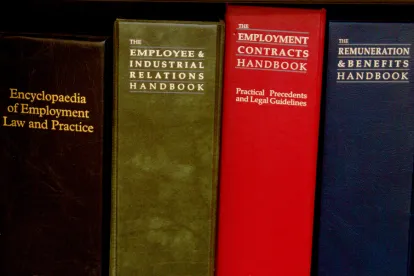In recent months, we have written about the limits Article III places on plaintiffs bringing Fair Credit Reporting Act (FCRA) claims. (See here, here, and here). In October, two federal district courts further illustrated these limits by dismissing FCRA actions based on lack of Article III standing.
In Saltzberg v. Home Depot, U.S.A., Inc., 2017 WL 4776969 (C.D. Cal. Oct. 18, 2017), the plaintiff completed the employer’s disclosure and authorizations forms, which consisted of two pages. The plaintiff alleged that the background check authorization was invalid because the two forms constituted one document and thus the employer violated the FCRA’s standalone disclosure requirement. See 15 U.S.C. § 1681b(b)(2)(A)(i).
The court dismissed the plaintiff’s claim for failure to allege Article III standing. It concluded that the plaintiff’s complaint merely contained “an allegation of a statutory violation, not an injury-in-fact.” Such a “violation of the FCRA is insufficient without connecting it to a concrete injury.”
A Florida federal district court reached a similar conclusion in Riley v. United Parcel Serv. of Am., Inc., Case No. 6:17-cv-00254, Dkt. 58 (M.D. Fl. Oct. 2, 2017). In Riley, the employer made a conditional offer to the plaintiff, which it subsequently rescinded based on the results of a background check. The plaintiff brought FCRA claims against the employer for failure to provide him with: (a) a pre-adverse action notice before rescinding the offer; (b) a copy of the background report; and (c) a description of rights under the FCRA. While the employer’s background check provider furnished this information to the plaintiff, he contended that disclosure from the provider “cannot take the place of the notice UPS was required to provide[.]”
The plaintiff claimed to have suffered a concrete injury because the employer failed to provide the requisite information, and the employer’s non-compliance “deprived him of the opportunity to learn of the charges against him and … tell[] [the employer] his side of the story.” The employer moved to dismiss, arguing that the plaintiff lacked Article III standing because he did not allege his consumer report was inaccurate, and he received all of the required information, albeit it not from the employer.
The court granted the employer’s motion because the plaintiff did not adequately allege “a harm or a material risk of harm that Congress identified or intended to curb when it passed the FCRA.” It reasoned that the plaintiff did not sustain a cognizable “informational injury” because “he was already in possession of [the required] information” even though he received it from a third party. Moreover, the court disregarded the plaintiff’s “conclusory assertion that he had no opportunity to learn of the charges against him or that he was prevented from discussing the contents of his consumer report with [the employer] before it revoked its conditional job offer.”
What This Means for Employers
As discussed previously on this blog, courts throughout the country continue to address the contours of Article III standing in the context of the FCRA. Compliance is the best defense to such actions, and employers should analyze their background check disclosure and authorization forms to avoid costly class litigation. Employers faced with FCRA litigation should consult with experienced counsel to explore the potential for early dismissal based on lack of Article III standing.



 />i
/>i

